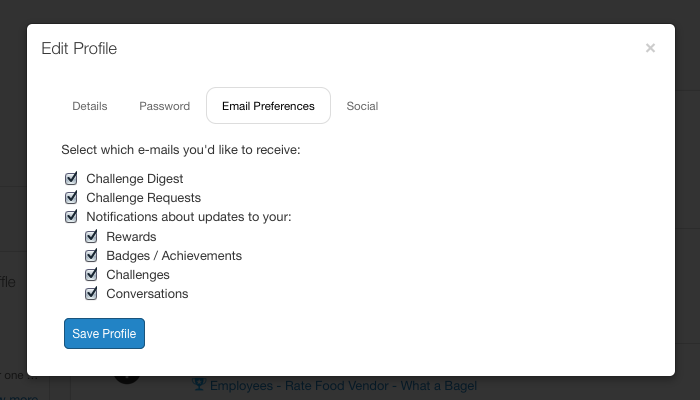
We’ve put together a short list of frequently asked questions to help you understand how Influitive’s advocate marketing software and your advocate marketing program are affected by CASL. This article is provided as a resource, but does not constitute legal advice.
1) What is CASL?
CASL stands for Canada’s Anti-Spam Legislation. While the legislation covers several different components, the most important implications refer to the sending of Commercial Electronic Messages (CEMs). CEMs include all emails sent that are commercial in nature.
2) I’m not Canadian. Does CASL affect me?
Possibly. CASL applies to all CEMs sent from OR sent to Canadians. This means that even if you are a business based outside of Canada, CASL regulations apply to the emails that you send to Canadians.
 3) Are emails sent by Influitive’s software considered CEMs under CASL?
3) Are emails sent by Influitive’s software considered CEMs under CASL?
Yes. Emails sent via Influitive’s software, such as challenge notifications, reminder emails, and challenge digests, are considered commercial electronic messages under CASL.
4) How do I ensure that I comply with CASL regulations when using Influitive’s software?
There are three aspects of the regulations that are relevant:
a) You may only send emails to those people who have given you express or implied consent.
Express consent means someone has indicated that they are willing to receive commercial electronic messages from you. In other words, they have opted in.
Implied consent includes anyone who has an existing business relationship with your company. Since advocates are typically customers, partners, employees and other stakeholders in your business, they are covered by implied consent.
In the rare event that you would like to invite someone who does not have an existing business relationship with your company into your advocate marketing program, you will need to get express consent from them before sending them any communications about your program.
b) Certain information needs to be included in all emails.

To comply with these regulations, Influitive has added Admin settings that allow you to insert your physical mailing address into all email communications sent from AdvocateHub.
c) All emails must include the ability to opt-out from future communications.
Influitive already complies with these regulations by allowing all advocates to unsubscribe from all email communication. Unsubscribe information can also be tracked inside of AdvocateHub.
In addition, there is new functionality within AdvocateHub’s Edit Profile window that allows advocates to choose the types of emails they want to receive, such as challenge digests, challenge requests and notifications.
5) What about referrals?
Referrals are specifically listed as being exempt from CASL, however:
- The person making the referral must have an existing business, non-business, family or personal relationship with the recipient.
- The message must disclose the full name of the person who made the referral.
- The communication must state that the message is sent as a result of the referral.
 6) Where do I go if I have more questions?
6) Where do I go if I have more questions?
- Review the official Government of Canada website.
- Speak to your Advocacy Coach. While they are available to assist you with the new features in AdvocateHub, they are not attorneys and cannot give legal advice.
- Contact an attorney who is familiar with this issue for legal advice.
We hope this information will help you feel better prepared for July 1st, when Canada’s Anti-Spam Legislation comes into effect.
Oh, and Happy Canada Day to our fellow Canadians, eh!











































 3) Are emails sent by Influitive’s software considered CEMs under CASL?
3) Are emails sent by Influitive’s software considered CEMs under CASL?
 6) Where do I go if I have more questions?
6) Where do I go if I have more questions?